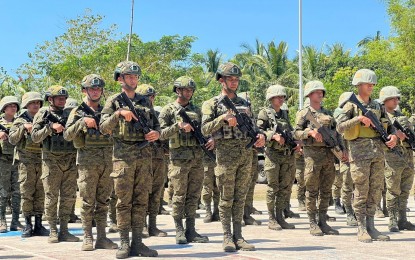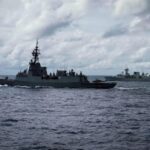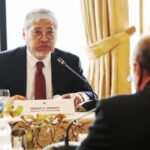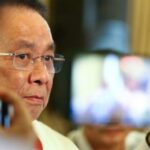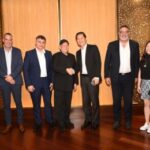MANILA – The Armed Forces of the Philippines (AFP) said it remains “solid and disciplined” despite the current issues affecting the government stemming from alleged anomalous flood control projects.
“We are a solid and disciplined organization and we remain professional through all of this,” an AFP spokesperson said in a press briefing at Camp Aguinaldo in Quezon City.
The spokesperson likened “politically motivated distractions” to radio static, which “make noise but don’t actually change the signal.”
“Our focus is locked on our mission and that is to protect the people and secure the State,” the spokesperson said.
It was reiterated that there is no brewing military-led destabilization plot, saying such claim is “part of disinformation campaigns.”
“As we have always stated, there’s one AFP, there’s one Philippines, and a strong AFP and a strong Philippines,” the spokesperson said.
Armed Forces of the Philippines
The Armed Forces of the Philippines (AFP) is the military organization of the Republic of the Philippines, established on December 21, 1935. It evolved from revolutionary forces that fought for independence and is responsible for national security, comprising the Army, Air Force, and Navy.
11th Infantry Battalion
The 11th Infantry Battalion is a military unit, not a geographical place or cultural site. Its history is tied to the specific army it serves within, with such battalions typically having origins in raising citizen-soldiers for national defense or major conflicts. The legacy of any given 11th Infantry Battalion is defined by its unique battle honors and the campaigns in which it has fought.
Salag, Negros Oriental
I am unable to find any significant cultural, historical, or tourist site named “Salag” in Negros Oriental. It is possible this refers to a very small, local area not widely documented. For accurate information, it would be helpful to have more specific details or verify the spelling of the location.
Camp Aguinaldo
Camp Aguinaldo is a major military camp in Quezon City, Philippines, which serves as the headquarters of the Department of National Defense. It was established in 1935 and named after Emilio Aguinaldo, the first president of the Philippines. The camp is historically significant as a key site of the 1986 People Power Revolution that toppled the Marcos regime.
Quezon City
Quezon City was founded in 1939 and served as the capital of the Philippines from 1948 to 1976. It was named after Manuel L. Quezon, the second President of the Philippines, who envisioned a new capital city. Today, it is the most populous city in the Philippines and a major center for government, education, and commerce.

